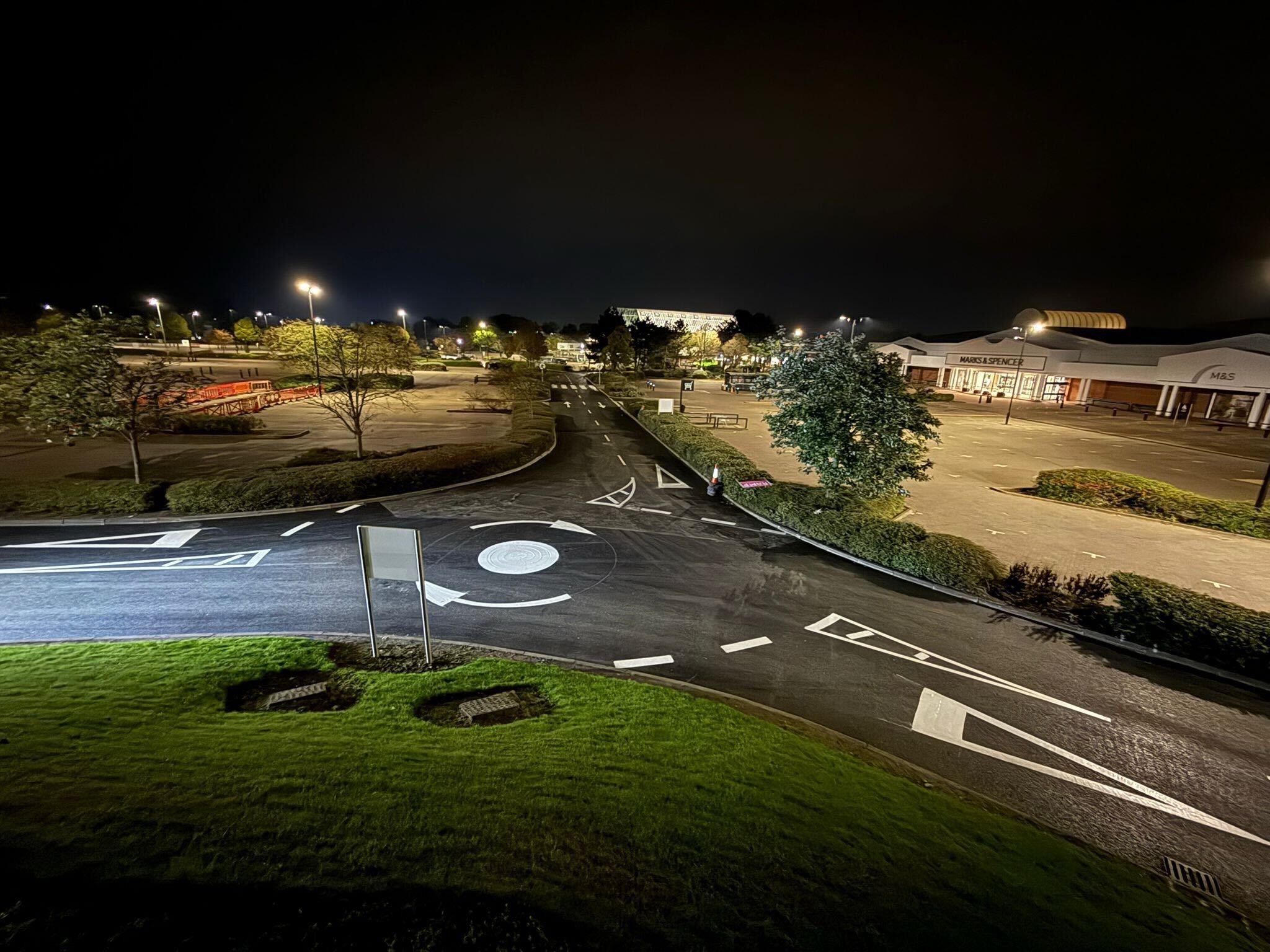How Long Do Road Markings Last — and What Affects Their Lifespan?

One of the most common questions local authorities, developers, and private site managers ask is:
👉 “How long do road markings typically last?”
The answer depends on several factors — because not all materials or environments perform the same way.
At C&R Ltd, we install thermoplastic and MMA road markings nationwide, so understanding lifespan is essential to planning future maintenance, safety, and compliance.
🧪 What Determines Road Marking Lifespan?.
The longevity of a road marking isn’t just determined by the paint itself — it’s a combination of materials, traffic, weather, and surface condition.
Here’s what makes the biggest difference:
🔹 Material Type.
Different marking materials have different lifespans.
Thermoplastic
-
Most common on UK roads
-
Excellent durability and reflectivity
-
Typical lifespan: 2–4 years depending on conditions
MMA (Cold Plastic)
-
Extremely durable and UV-resistant
-
Suitable for high-wear areas, junctions, crossings
-
Typical lifespan: 4–8 years
Traditional road paint
-
Lower cost but shorter life
-
Typical lifespan: 6–18 months
Choosing the right material is key to long-term performance — and C&R advises clients based on the environment and traffic flows.
🚗 Traffic Volume & Wear.
Markings in busy areas such as:
-
Urban centres
-
Retail parks
-
Roundabouts
-
Bus routes
-
Distribution hubs
…will naturally wear faster than markings on quieter roads.
Heavy braking, turning, and lorry traffic are especially demanding on thermoplastic and MMA.
🌧️ Weather & Environment.
UK weather is tough on road markings:
-
UV exposure fades colour
-
Rain affects adhesion if the surface isn’t dry during installation
-
Frost and freeze-thaw damage the surface below
C&R uses reflective glass beads and high-performance resins to maintain visibility and resilience all year round.
🛠️ Surface Preparation.
Even the best materials fail quickly if the surface wasn’t properly prepared.
Good preparation includes:
-
Cleaning
-
Drying
-
Debris removal
-
Priming (where necessary)
Poor preparation leads to peeling, lifting, or premature wear — which is why preparation is one of the most important steps in C&R’s process.
📍 Application Quality.
Experienced installation is crucial. C&R’s trained specialists ensure:
-
Correct temperatures for thermoplastic
-
Even thickness
-
Accurate bead distribution
-
Full compliance with TSRGD standards
A well-installed marking lasts significantly longer and remains visible in all conditions.
📅 How Often Should Road Markings Be Replaced?.
As a general guide:
-
High-traffic roads: every 1–2 years
-
Retail parks & access roads: every 2–3 years
-
Low-traffic rural roads: every 3–5 years
-
MMA high-wear areas: up to 8 years
Regular inspections are essential to maintaining safety and compliance.
🏁 Conclusion.
Road marking lifespan varies widely — but with the right materials, preparation, and expert installation, you can maximise durability and visibility.
If your road markings are looking faded or unclear, it may be time to plan a refresh.
👉 Contact C&R Ltd today for a site survey or road marking maintenance programme.
Why Choose C&R.
As one of the UK’s leading specialists in line marking, surface preparation, coatings, and cleaning, C&R delivers expert advice, professional results, and long-lasting performance nationwide.
Over 30 Years’ Experience
Trusted nationwide by major brands and local authorities.
Fully Accredited & Insured
Working to UK safety and environmental standards.
Complete Start-to-Finish Service
From design and preparation to marking and aftercare.
Nationwide Coverage
Responsive teams operating across England, Scotland, and Wales.
